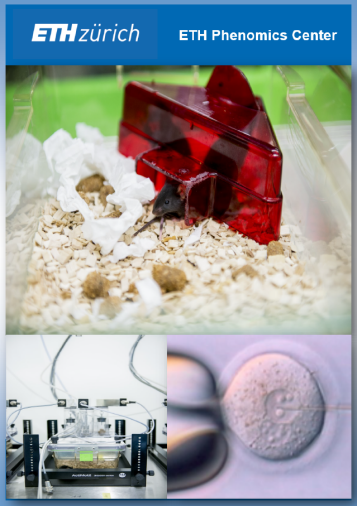Scientific Services
The ETH Phenomics Center (EPIC) includes a number of different units providing services for Phenotypic Analysis of in-vivo models, Transgenesis, Laboratory Animal Housing and Scientific Support.
More and more, researchers from different research areas join forces and work in multidisciplinatory networks to develeop innovative technologies, methods and new insights to tackle important diseases of society.
With the ETH Phenomics Center (EPIC), ETH Zurich bundles scientific know-how and demanding technical infrastructure under one roof into a service-oriented technology platform. Five different scientific units at EPIC provide researchers with access to high-end scientific devices, laboratory animal housing capacity as well as technical and scientific support focused on molecular health sciences and laboratory animal experimentation.
Phenotyping
The Phenotyping Unit provides know-how and specifically equiped laboratories and devices to analyse the phenotype of genetically modified mouse models applied to study different disease-mechanisms.
Transgenesis and Cryopreservation
The Transgenic Unit provides transgenic services for the generation of new disease-models based on genetically modified mice by way of CRISPR/Cas technology, random or BAC-transgenesis. The unit also provides cryopreservation services, revitalisation and in-vitro fertilisation techniques to support researchers with management and long-term preservation of valuable mouse mutants.
Laboratory Animal Facility
The Laboratory Animal Facility comprises the required infrastructure, equipment and professional staff for state-of-the art housing of laboratory animals used for research at ETH Zurich.
The Isolator Unit provides access to gnotobiotic and germ-free mice used in a variety of research questions, especially for studying the role of intestinal microorganisms in metabolism and infection.
